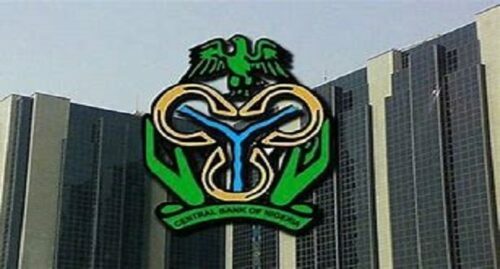In an effort to stem the tide of instability in the Nigerian exchange rate market, the Central Bank of Nigeria (CBN) has ordered that all banks with excess 20 percent foreign exchange holding should sell them off by today, February 1, 2024.
The CBN made this directive public in a new circular released on Wednesday, warning that failure to comply with the directive on sale of excess foreign exchange will result in immediate sanction and/or the suspension from participation in the foreign exchange market.
According to the CBN, the directive is geared towards controlling the growth in foreign currency exposures of banks through their Net Open Position (NOP).
The exposures from the NOP is believed to have created an incentive for banks to hold excess long foreign currency positions, which exposes banks to foreign exchange and other risks.
To ensure that the NOP exposure risks are well managed and avoid losses that could pose material systemic challenges, the CBN has issued prudential requirements contained in a Circular titled “Harmonisation of Reporting Requirements on Foreign Currency Exposures of Banks.”
The Circular reads: “The Net Open Position (NOP) limit of the overall foreign currency assets and liabilities taking into cognizance both those on and off-balance sheet should not exceed 20% short or 0% long of shareholders funds unimpaired by losses using the Gross Aggregate Method.
“Banks whose, current NOP exceed 20% short and. 0% long of their shareholders’ funds unimpaired by losses are required to bring them to prudential limit by February 1, 2024.
“Banks are required to compute their daily and monthly NOP and Foreign currency trading position (FCTP) using the attached templates.
“Banks are also required to have adequate stock of high-quality liquid foreign assets, i.e. cash and government securities in each significant currency to cover their maturing foreign currency obligations.
“In addition, banks should have in place a foreign exchange contingency funding arrangement with other financial institutions.”
The CBN also ordered that banks should borrow and lend in the same currency (natural hedging) to avoid currency mismatch associated with foreign currency risk.
The Apex bank also directs that the basis of the interest rate for borrowing should be the same as that of lending i.e. there should be no mismatch in floating and fixed interest rates, to mitigate basis risk associated with foreign borrowing interest rate risk.
“With respect to Eurobonds, any clause of early redemption should be at the instance of the issuer and approval obtained from the CBN in this regard, even if the bond does not qualify as tier 2 capital
“All banks are required to adopt adequate treasury and risk management systems to provide oversight of all foreign exchange exposures and ensure accurate reporting on a timely basis.
“Banks are expected to bring all their exposures within the set limits immediately and ensure that all returns submitted to the CBN provide a accurate reflection of their balance sheets, the CBN circular stated.
The directive of the CBN coincides with the Senate Committee on Banking, Insurance and other Financial Institutions resolve to summon the Governor of Central Bank of Nigeria, Olayemi Cardoso.
The Central Bank Governor is expected to meet with the senate on Tuesday, 6th of February, 2024 at 3pm.
